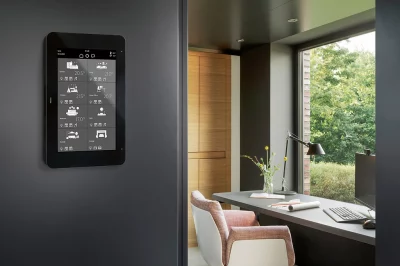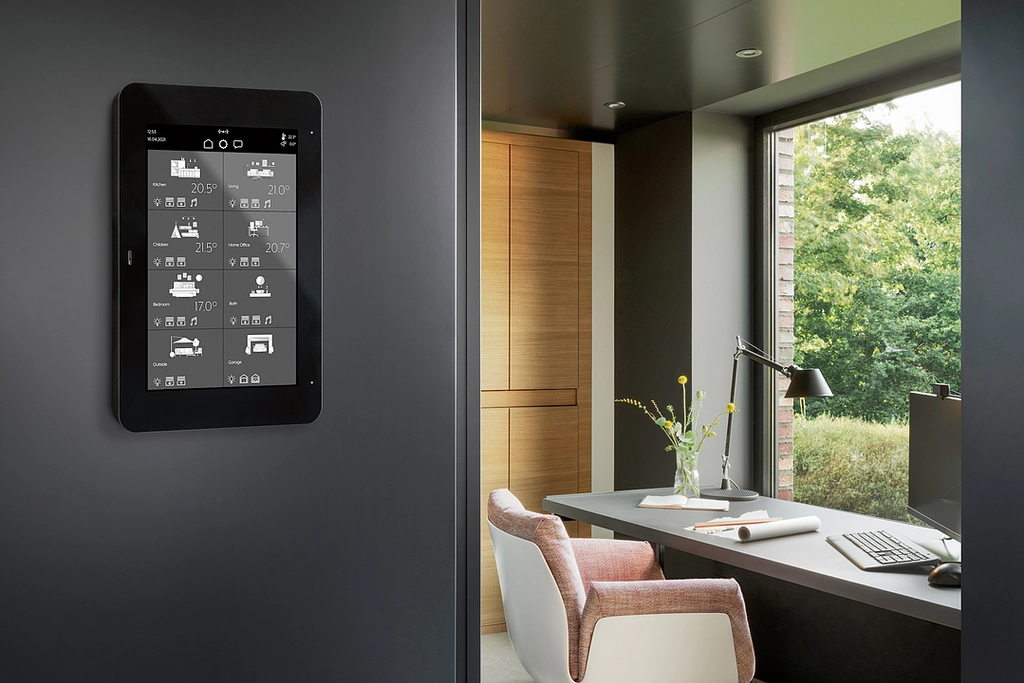In today’s fast-paced world, smart home technology is revolutionizing how we interact with our living spaces. It’s transforming houses into integrated, interactive, and intelligent environments, enhancing comfort, convenience, security, and energy efficiency. This article explores the fascinating world of smart home technology, its components, benefits, challenges, and the future it holds.
1. Introduction to Smart Home Technology Smart home technology refers to a system of interconnected devices that can be controlled remotely and often autonomously. This technology ranges from basic applications like smart thermostats to advanced systems that integrate various home functions such as lighting, heating, and security.
2. The Evolution of Smart Home Technology The concept of a ‘smart home’ has evolved significantly over the years. From rudimentary remote-controlled devices to AI-powered systems that learn and adapt to our preferences, smart home technology has come a long way. This evolution is driven by advancements in technology, including the Internet of Things (IoT), artificial intelligence (AI), and machine learning.
3. Key Components of Smart Home Systems Smart home systems consist of various components, including sensors, controllers, and actuators. Sensors detect changes in the environment, controllers process this information, and actuators carry out the necessary actions. These components work together seamlessly to create an intuitive and responsive home environment.
4. Connectivity and Integration in Smart Homes Connectivity is at the heart of smart home technology. This integration allows various devices to communicate with each other and with the user, creating a cohesive and efficient system. Technologies like Wi-Fi, Bluetooth, Zigbee, and Z-Wave are commonly used for this purpose.
5. Popular Smart Home Devices There’s a wide range of smart home devices available today. Popular devices include smart thermostats, smart lights, smart locks, smart cameras, voice assistants, and smart appliances. Each of these devices adds a layer of convenience and functionality to the home.
6. Benefits of Smart Home Technology The benefits of smart home technology are vast. It offers increased convenience and comfort, enhanced security, energy efficiency, and cost savings. Smart homes can also provide significant benefits for people with disabilities or the elderly, offering increased independence.
7. Smart Home Technology and Energy Efficiency One of the most significant benefits of smart home technology is its impact on energy efficiency. Smart thermostats and lighting systems optimize energy usage, reducing the environmental footprint and saving on utility bills.
8. Security and Privacy Concerns While smart home technology offers numerous benefits, it also raises concerns about security and privacy. As homes become more connected, they potentially become more vulnerable to cyber threats. Ensuring robust security protocols and privacy protection is essential.
9. The Future of Smart Home Technology The future of smart home technology is incredibly promising. We can expect further integration of AI and IoT, leading to even more personalized and efficient home environments. Innovations like energy-generating solar windows and AI-driven personal assistants could become commonplace.
10. Smart Homes and Lifestyle Changes Smart home technology is not just about the gadgets and systems; it’s also about lifestyle changes. It encourages us to think differently about how we interact with our living spaces, making our homes more responsive to our needs and habits.
11. Challenges in Adopting Smart Home Technology Adopting smart home technology comes with challenges. These include the cost of installation, the learning curve associated with new technologies, and compatibility issues between different devices and systems.
12. Smart Home Technology in the Real Estate Market Smart home technology is increasingly becoming a factor in the real estate market. Homes equipped with smart technology are often more attractive to buyers, potentially increasing their market value.
13. Conclusion: Embracing the Smart Home Revolution In conclusion, smart home technology is an exciting and rapidly evolving field that has the potential to significantly enhance our daily lives. As technology continues to advance, it will be interesting to see how smart homes become even more integrated and capable, fundamentally changing our living environments.








